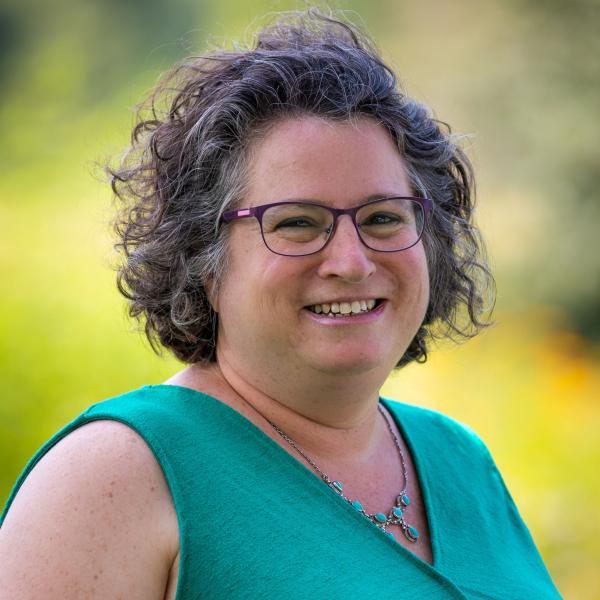Grantee Spotlight: HFLA of Northeast Ohio
Burton D. Morgan Foundation has partnered with Hebrew Free Loan Association (HFLA) to support entrepreneurs across Northeast Ohio since 2016. Executive Director Michal Marcus graciously agreed to meet with us recently to discuss her organization and the vital role it plays in our region’s entrepreneurial ecosystem.
Foundation: Can you tell us a bit about HFLA, and how it supports individuals and businesses across Northeast Ohio?
Michal: HFLA of Northeast Ohio provides interest-free loans to promote the economic self-sufficiency and growth of Northeast Ohioans who are unable to access safe and fair lending resources. In 1904, five Jewish businessmen saw immigrants arriving in Cleveland and saw the need for small business loans that would help support themselves and their families in their home. Our first loans often went to people needing to buy horses and carts and other business supplies to grow their businesses.
Our mission stems from Jewish principles, that one should not charge interest when helping someone in need, and that the highest form of charity is empowering someone to help themselves which is what an interest-free loan does.
HFLA has three different types of loans:
- Standard - these are personal loans to help with financial hurdles such as buying a car or home, car repair, delinquent bills, dental expenses, IVF treatment, debt consolidation, credit building and more.
- Education loans for undergraduate, graduate, vocational or technical school. We help with a shortfall.
- Small business loans to help people start or grow their businesses.
We are a micro-lender with loans going up to $10,000 for those who don’t have access to fair financial resources but have the ability to repay a loan.
Foundation: Lack of capital access is often cited as a major barrier that individuals face when launching or growing a business. HFLA helps address this barrier with business loans. What are HFLA's goals for business borrowers?
Michal: HFLA wants to see businesses thrive. Small businesses are essential for Northeast Ohio. They provide an opportunity for wealth building for individuals and families, and they support the broader economy. We want businesses to grow and for their owners to be able to access more resources as needed from traditional banks and other microlenders.
Foundation: There has been persistent unequal access in the lending space. Can you discuss the approaches that HFLA employs that make it a valuable addition to the capital access continuum in Northeast Ohio?
Michal: Traditional lenders often use an unfair, antiquated formula to determine eligibility for traditional loans. HFLA believes in relationship lending. We are not looking at an algorithm, we are looking at an individual–listening to their story and working to understand their complete financial history. We are still doing our due diligence. We look at their income compared to expenses. We run a credit report to see how they pay their bills, we don’t look at a credit score. HFLA wants to see that our loan will move an individual forward and not just serve as a band-aid to a larger problem. When it comes to small business, we want to see a plan, and see that the business owner understands their financial position and has a clear vision for the business’ growth.
Foundation: It’s not uncommon for small businesses to rely on the support of friends and family to make it, but bootstrapping can be particularly challenging in communities with limited financial assets. How do you reach these business owners to make them aware of the capital they can access through HFLA?
Michal: HFLA relies on our partner agencies and word of mouth for many of our referrals. We often work with organizations that can provide the technical assistance that small businesses need. Working with these organizations helps businesses develop a business plan and understand their financial documents. They can help businesses get to the point where they are ready to receive capital and will then refer them to HFLA.
We are not able to reach everyone that we could help, and we are constantly seeking out new ways to share information with the broader community. While an HFLA loan is not for everyone, there are still more people we can help.
Foundation: HFLA has a very low default rate. There have been instances in which borrowers have continued to repay their business loans even after their businesses have ceased operations. How has HFLA been successful in this regard?
Michal: Relationship lending is getting to know a person. It is ensuring someone understands that the interest-free loan they are receiving was initiated by support from the larger community and continues to be possible because someone before them repaid their loan. It means a lot to give someone the power to help themselves when traditional lending is not available to them.
Foundation: From HFLA’s vantage point, what strategies should be considered to improve access to capital, particularly for entrepreneurs of color and women?
Michal: There has been a lot of movement toward making capital more accessible for people of color and women entrepreneurs. While there are many new programs that designate a specific amount of capital for certain demographics of entrepreneurs, there could be more movement if traditional lenders allowed for more flexibility and alternative underwriting. Additionally, I think many in our community are not aware of the numerous resources available to them. We all need to find a better way to ensure these resources are easily accessible and known to those that can benefit from them.
Learn more about HFLA’s interest free loans here.

